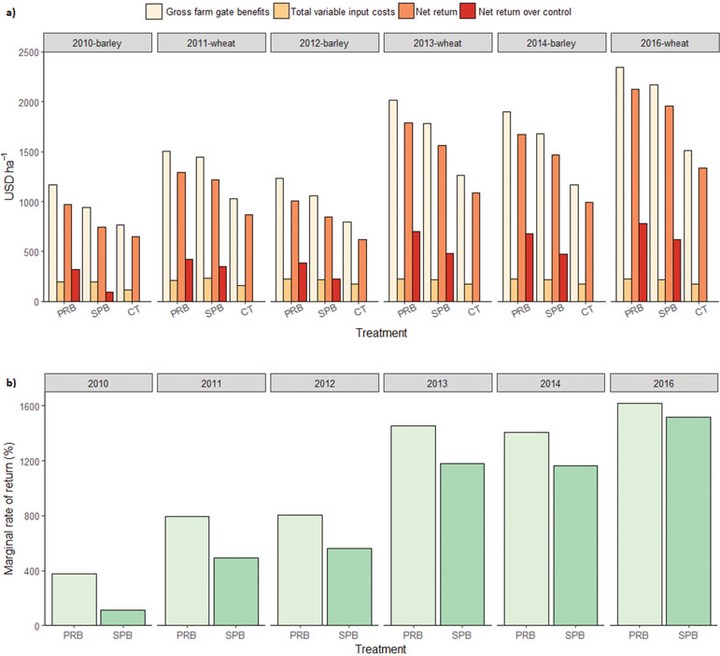Implementation of permanent raised beds contributes to increased crop yield and profitability in the Northeastern Tigray region, Ethiopia

Abstract
A major problem faced by small-scale farmers in northern Ethiopia is reduced crop yield due to increasing soil degradation resulting from repeated tillage and inadequate agronomic management practices. These practices have left soils and rainfed crops susceptible to hazardous climatic events such as droughts. Sustainable farm practices such as minimum tillage and surface residue retention have been shown to improve soil health and crop productivity. The objectives of this field study were thus to evaluate the impacts of conservation agriculture (CA) practices on crop yield and economic productivity over 6 years in the eastern Tigray region of northern Ethiopia. Using a barley-wheat rotation from 2010 to 2016, the applied treatments were (i) permanent raised beds (PRB); (2) semi-permanent raised beds (SPB) and (3) conventional tillage (CT). Average barley and wheat biomass and grain yields in PRB and SPB treatments were consistently greater than yields under CT each year. In addition, the highest marginal rate of return was obtained in PRB and SPB compared to CT in all years (2010-2016). These results suggest that the CA practices of PRB and SPB can improve crop yield and profit compared to CT practices in the Tigray region.